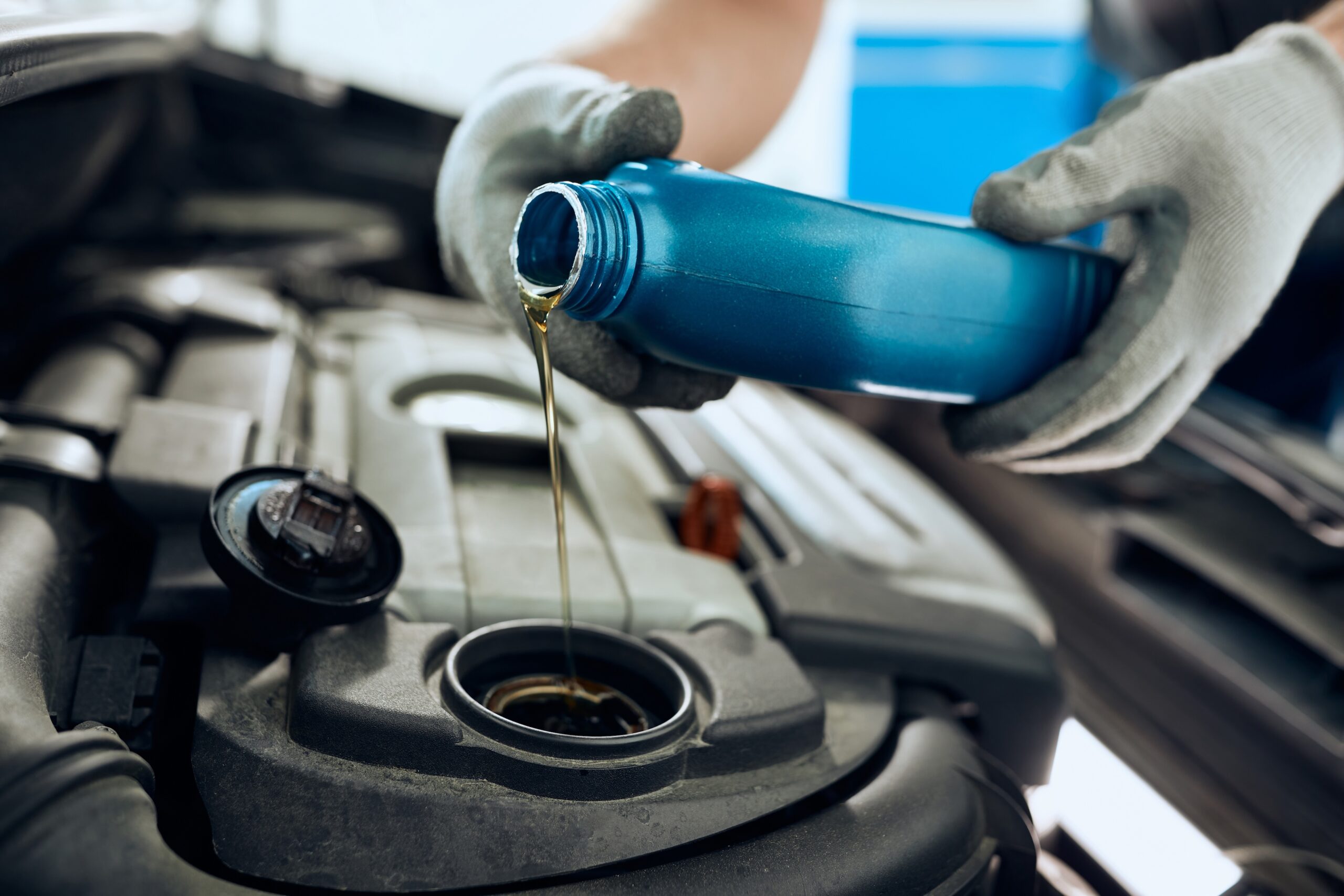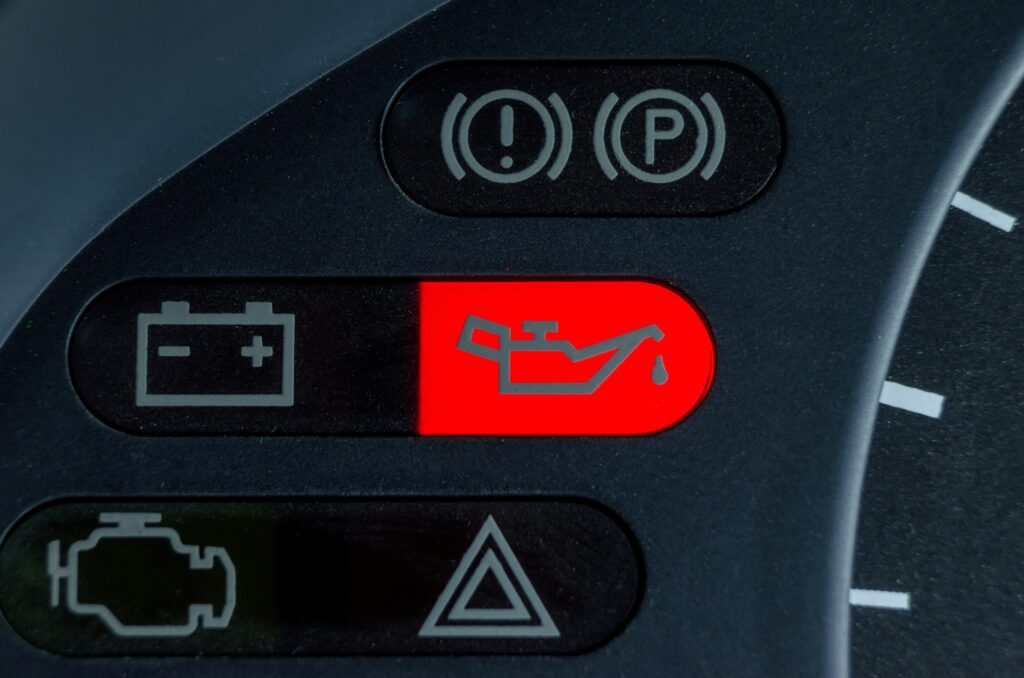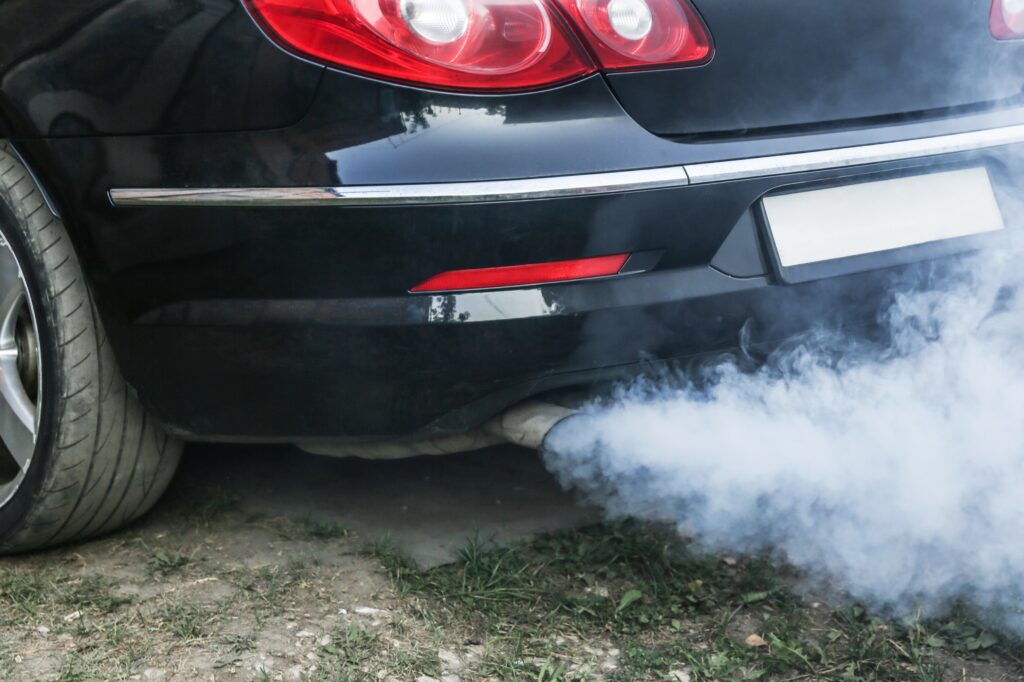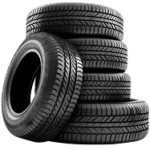What Happens If You Never Change Your Oil?

Regular oil changes are one of the simplest yet most important things you can do to keep your car running smoothly. However, busy schedules and a misunderstanding of their importance mean regular oil changes are sometimes forgotten or skipped. A few missed oil changes won’t matter, right? Unfortunately, neglecting your oil can lead to expensive repairs and even leave you stranded, causing reduced performance or even complete engine failure.
At Telle Tire, our certified technicians help drivers across St. Louis, Kansas City, Springfield, and beyond protect their engines with professional oil change services.
The Consequences of Skipping Oil Changes
Failing to change your oil regularly has a snowball effect. Minor problems start to build until they become major, costly issues. From the moment your oil begins to break down, your engine’s internal components are at risk for damage. Let’s take a closer look at what happens inside your vehicle when maintenance is neglected.
Oil Breaks Down Over Time
Engine oil isn’t invincible. Over time, heat, friction, and contaminants cause it to lose its lubricating properties. When that happens, it can no longer protect your engine parts from wear and tear, leaving your car vulnerable to serious damage.
Engine Wear Increases
Your engine’s moving metal components rely on a thin film of oil to glide smoothly. Without proper lubrication, these parts grind together, creating friction that accelerates wear and can warp or crack critical engine components.
Sludge Buildup
Dirty engine oil can turn into thick sludge, clogging the oil filter and oil passages. This sludge starves engine parts of lubrication, reduces performance, and can eventually block oil flow altogether.
Reduced Fuel Efficiency
When your engine has to work harder due to poor lubrication or sludge buildup, it causes increased fuel consumption. That means more trips to the gas station and less money in your pocket.
Engine Overheating
Oil doesn’t just lubricate. It also helps carry heat away from your engine. If your engine oil is old or dirty, it can’t do its job, causing your engine to run hotter than it should. Persistent overheating can warp parts, blow head gaskets, and lead to catastrophic engine damage.
Engine Failure
According to AAA, skipping oil changes is one of the most common and most damaging maintenance mistakes drivers make. Skip oil changes long enough, and you’ll eventually face the worst-case scenario: complete engine failure. At that point, your only options are a costly rebuild or replacement, both of which cost far more than routine maintenance.
How Often Should You Change Your Oil?
Most vehicles need an oil change every 3,000 to 5,000 miles for conventional oil, or 7,500 to 10,000 miles for synthetic oil. Always check your owner’s manual for the manufacturer’s recommendations and adjust based on your driving habits.
Conventional vs. Synthetic Oil
Both conventional and synthetic oils keep your engine lubricated, but they’re not the same.
Conventional Oil
- Refined from crude oil and works well when changed regularly
- Ideal for light, everyday driving as long as the recommended maintenance schedule is followed
Synthetic Oil
- Engineered with uniform molecules and enhanced additives
- Ideal for vehicles towing heavy loads or those who drive frequently on the highway
- Resistant to heat, and flows better in cold weather
- Resists sludge buildup and breakdown
- Costs more upfront, but lasts longer and offers better long-term protection
If you’re unsure which oil is best for your vehicle, Telle Tire’s technicians can help you choose the right type for your engine and driving habits.
Driving Conditions Matter
If you make frequent short trips, drive in stop-and-go traffic, or experience extreme heat or cold, your oil may degrade faster. In these cases, you may need to change your oil more often to protect your engine. Be sure to discuss your driving habits with an experienced technician who can help you create a maintenance schedule for your vehicle.
How to Know You’re Overdue for an Oil Change
Dashboard Warning Light
If your oil light comes on, your oil level or oil pressure is dangerously low. Anytime you see this light, it is an urgent warning to get your vehicle to a mechanic immediately.

Strange Engine Noises
Knocking, ticking, or grinding sounds can mean your engine is running without enough lubrication. If you hear these noises, stop driving and schedule an oil change right away to prevent engine failure.
Dark, Dirty Oil
Check our oil with the dipstick. If it’s dark, gritty, or smells burnt, it’s overdue for a chance. Clean oil should be amber and relatively clear.

Exhaust Smoke
White or blue smoke from the exhaust may indicate your engine is burning oil. This could mean severe internal damage and should be inspected right away.

Common Questions About Oil Changes
Can I go a little over my oil change interval?
A few hundred miles over likely won’t cause any immediate damage, but consistently delaying oil changes increases the risk of wear, overheating, and more expensive repairs.
What happens if I skip an oil change?
Skipping oil changes causes oil to break down and lose effectiveness, leading to sludge buildup, poor lubrication, overheating, and eventually engine failure.
Is synthetic oil better than conventional?
Synthetic oil offers better performance, especially in extreme conditions, and typically lasts longer than conventional oil. However, both require regular oil changes and may not be compatible with every engine.
Can dirty oil cause my engine to seize?
Yes. If oil becomes too dirty or thick, it can’t circulate properly, starving engine parts of lubrication and potentially causing them to seize.
Protect Your Engine—Schedule an Oil Change Today
Don’t risk the costly consequences of neglecting your engine. Keep your car running at its best with professional oil change service from Telle Tire. Find an oil change location near you and schedule your appointment today.

Take it to telle
Stay Safe with a Tire Check from Telle Tire
Worried about your tread depth or tire condition heading into the summer storm season? Take it to Telle. Our expert technicians can assess your tires, check pressure levels, and recommend replacements when necessary, helping you stay in control regardless of the weather conditions. Stay safe, stay prepared, and if you’re unsure about your tires, schedule a visit with your nearest Telle Tire & Auto Centers location today.
Stay Informed
Recent Articles from Telle Tire

Are Smart Tires & TPMS Worth It?
Tires play a bigger role in safety and performance than many drivers realize. If your tires are underinflated, worn unevenly, or overheating, your chances of a…

A Step-by-Step Fall Car Inspection & Tire Checklist to Avoid Breakdowns
As the temperatures drop, your vehicle feels the effects just as much as you do. Cold weather puts extra strain on critical systems like your battery,…

What Does Uneven Tire Wear Mean? Causes & Fixes
Uneven tire wear is a common issue drivers face, but it’s one of the easiest to overlook. When tire tread wears down abnormally, it’s more than…
